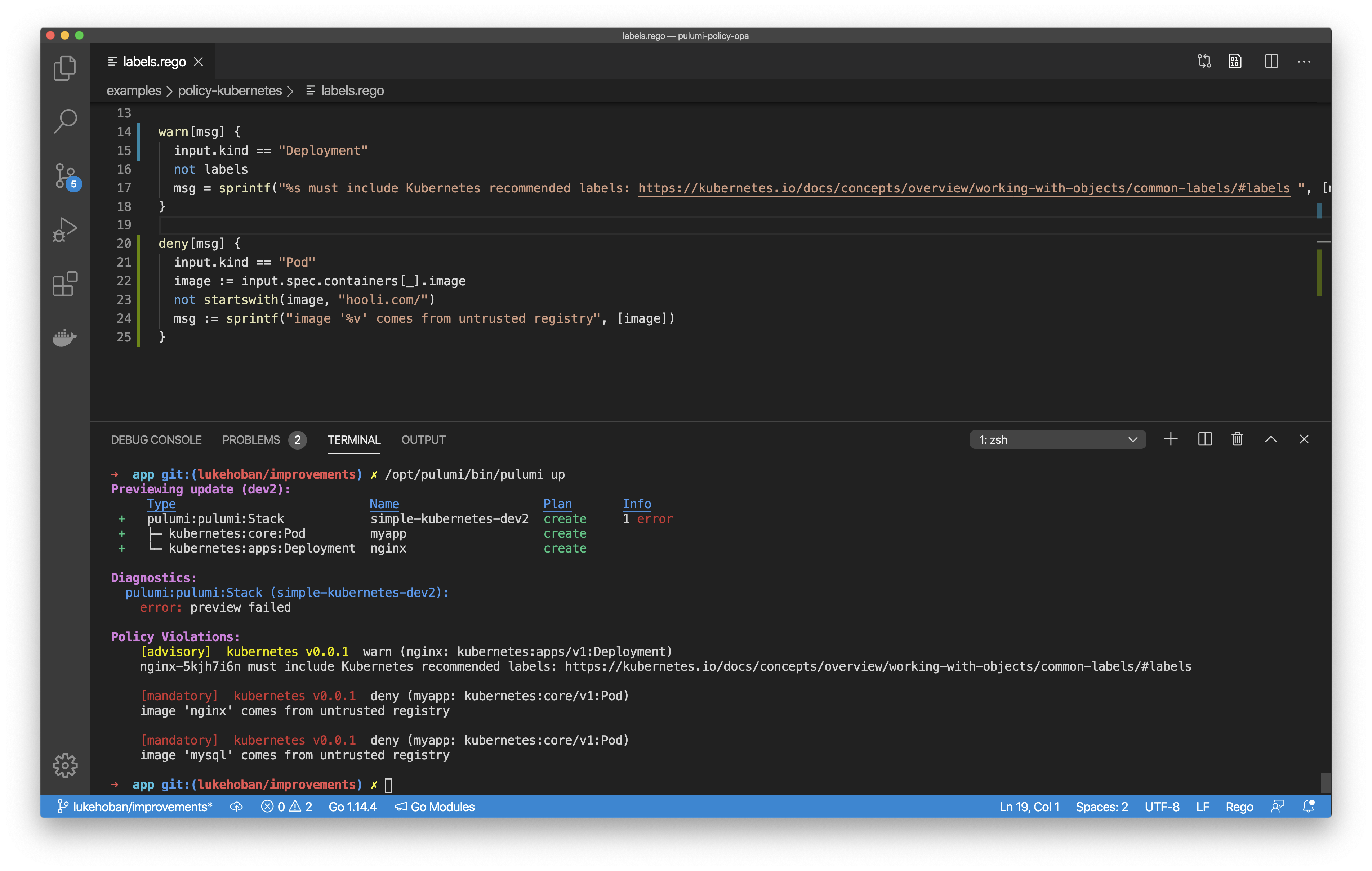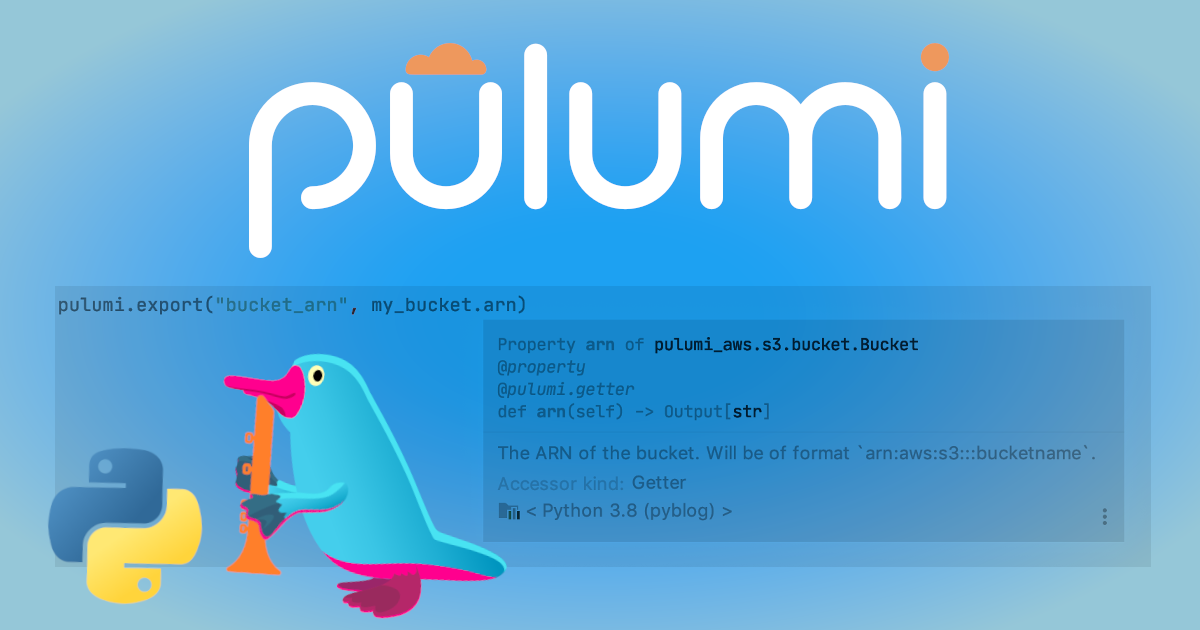
We’re excited to announce the addition of Open Policy Agent (OPA) Rego language support to Pulumi’s CrossGuard policy-as-code framework. This enables Pulumi CrossGuard policy to be authored in either JavaScript/TypeScript/Python or in the popular Rego language using OPA.
Pulumi’s CrossGuard policy-as-code framework provides the ability to author, apply and enforce policy directly as part of your Pulumi deployments. With the new support for OPA Rego, CrossGuard supports a broad spectrum of policy authoring options, from expressive imperative languages to a popular industry-standard declarative policy language.
OPA-based rules for CrossGuard get all the core benefits of Pulumi’s policy-as-code framework - policies can be run on previews to get warnings about errors before you even deploy, policies can produce either advisory or mandatory recommendations allowing flexibility in flagging and enforcing policy violations, and policies can be applied and enforced across an entire organization through the Pulumi Service.
Read more →



















